Many other NFL teams would look at Baltimore, sitting at 8-5 with four games to go, and immediately wish to trade places. With a reigning MVP quarterback, a rejuvenated top-of-the-line rusher and plenty of core pieces in place, Baltimore is poised for a playoff spot.
But better than average doesn’t cut it for the Ravens, who were a touchdown shy of a Super Bowl berth last year and calibrate all expectations by their pursuit of a Lombardi Trophy. This team doesn’t feel as good as 2023’s group, which The Banner evaluated this time last year at 9-3, so inevitably the impulse is to examine where the franchise has slipped.
In September, The Athletic’s poll of league executives voted the Eric DeCosta-led Ravens as the best front office in the NFL, a nod to the organization’s steady track record, history of draft bull’s-eyes and consistently competitive teams. Indeed, this Ravens group has taken steps forward, especially on the offensive side. But the vaunted defense has lost its luster and the special teams are no longer a strength.
Three-quarters of the way through the regular season, here are the highlights — and the lowlights — of the team’s biggest personnel decisions, using resources such as Pro Football Focus’ player grades, Spotrac’s salary figures and ESPN’s player ratings:
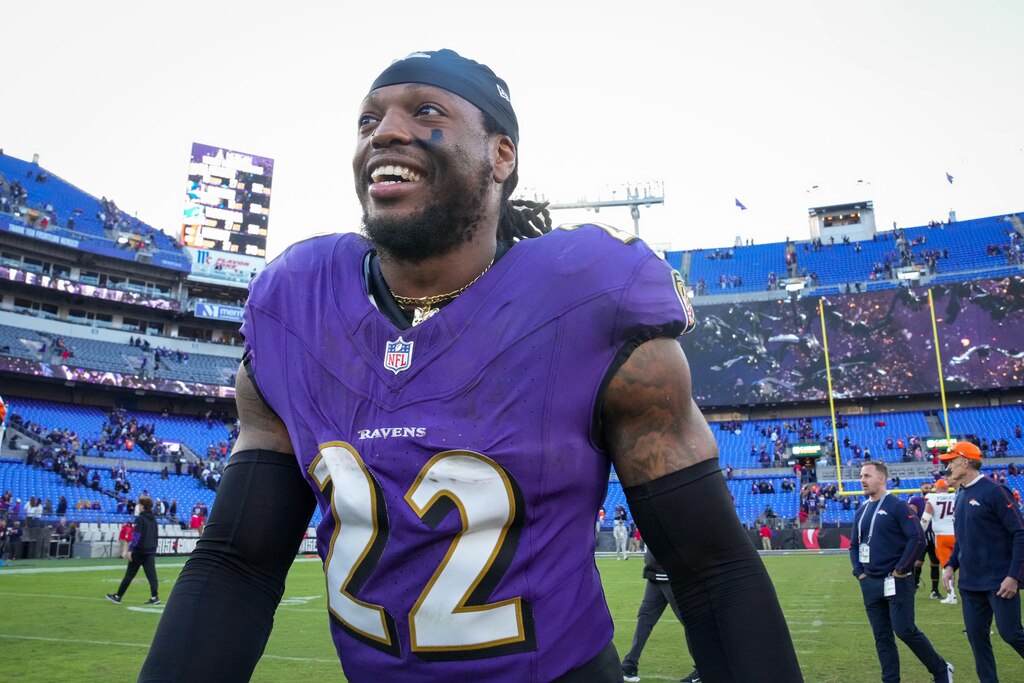
Best offseason signing: Running back Derrick Henry
Let’s start on the highest note. When the Ravens reached a deal with Henry (2 years, $16 million) in March, I was skeptical that signing a 30-year-old running back who probably had his best days behind him was a wise investment. The “best days behind him” part was probably my biggest misjudgment of the year. Henry has been, of course, spectacular. He’s second in the NFL in rushing yards (1,407), first in rushing TDs (13), first in rushes of 20 yards or more (14) and second in rush yards over expected (420).
After a bumpy 0-2 start, the Ravens started incorporating Henry more into the game plan and thus got out to one of the most dominant offensive starts in NFL history. Though the offense has struggled in recent games, you have to imagine Henry — who has been a fantastic December performer throughout his career — makes it possible for the Ravens to reach that level again.
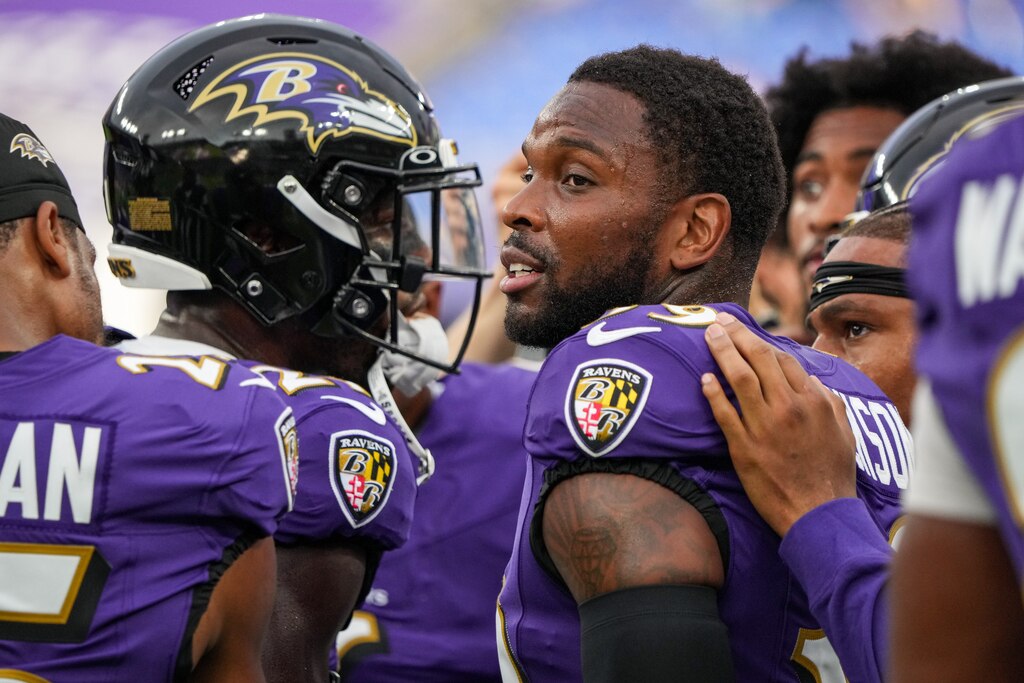
Worst offseason signing: Safety Eddie Jackson
We don’t even need to grade this move because Baltimore has made its own damning assessment: Jackson no longer is on the roster. At a position of extreme need where Marcus Williams is underperforming (we’ll get into that), Baltimore decided it wasn’t worth keeping Jackson (1 year, $1.5 million). In just about 55% of defensive snaps, Jackson was one of the lowest-graded safeties by Pro Football Focus (85th overall, with a 49.0 coverage grade). His season lowlight was against the Cleveland Browns, when he dropped multiple would-be interceptions and gave up the winning score in coverage.
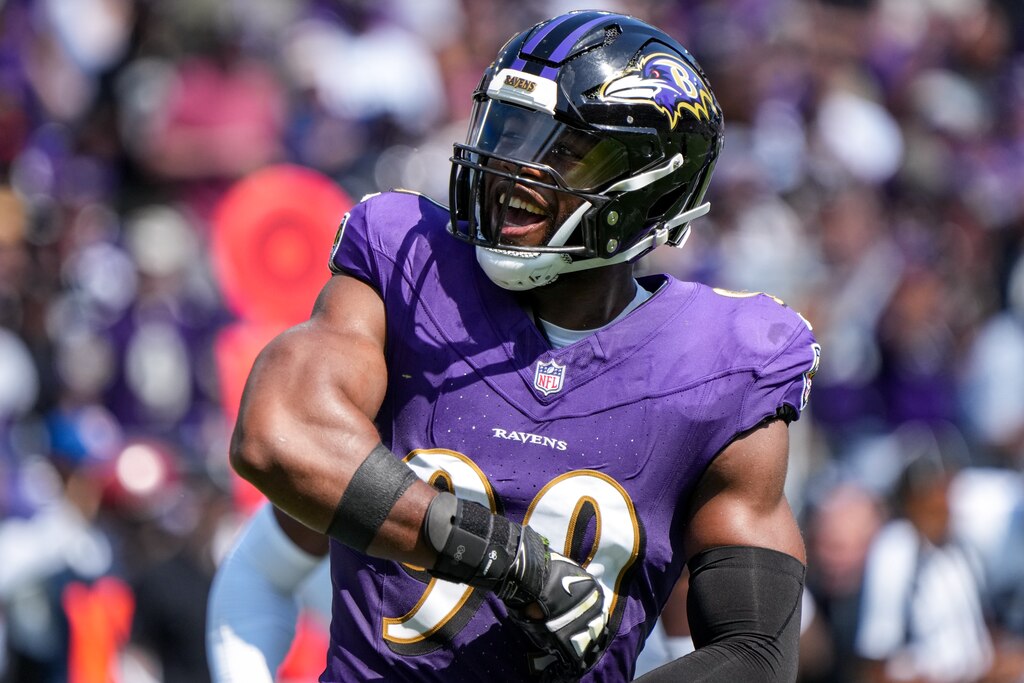
Best roster decision: Outside linebacker Odafe Oweh
It’s hard to top the decision to pick up Oweh’s fifth-year option. Oweh has eight sacks and the 13th-best pass rush win rate (18%) in football, not far behind Nick Bosa (21%) and T.J. Watt (19%). The catch is next year, when the club is on the hook for a $13.2 million cap hit for Odafe’s fifth season. That would be worth it if Oweh maintains this production. But, between that deal and a potential big-money contract extension for Kyle Hamilton, DeCosta will probably have to make other painful decisions to keep the young risers on the payroll. That being said, the Ravens will probably pay Oweh less next year than they would have had to if they had declined his fifth-year option.

Best extension: Running back Justice Hill
There’s a case that Kyle Van Noy’s contract value of just over $5 million has been worth all eight of his sacks so far. But I will give the nod to the extension for Justice Hill. If all the Ravens did to replace Gus Edwards and J.K. Dobbins was to sign Henry, it would have been a resounding success. Combined, their old backs have fewer yards with the Chargers (1,004) than Henry has by himself (1,407). But you also have to consider that Hill has been an effective receiver (37 catches, 322 yards) and blocker this season. With a PFF ranking of 17th among halfbacks, Hill ranks higher than either of his old teammates. Not only did Baltimore bring in a great free agent, but it chose the right running back to keep.
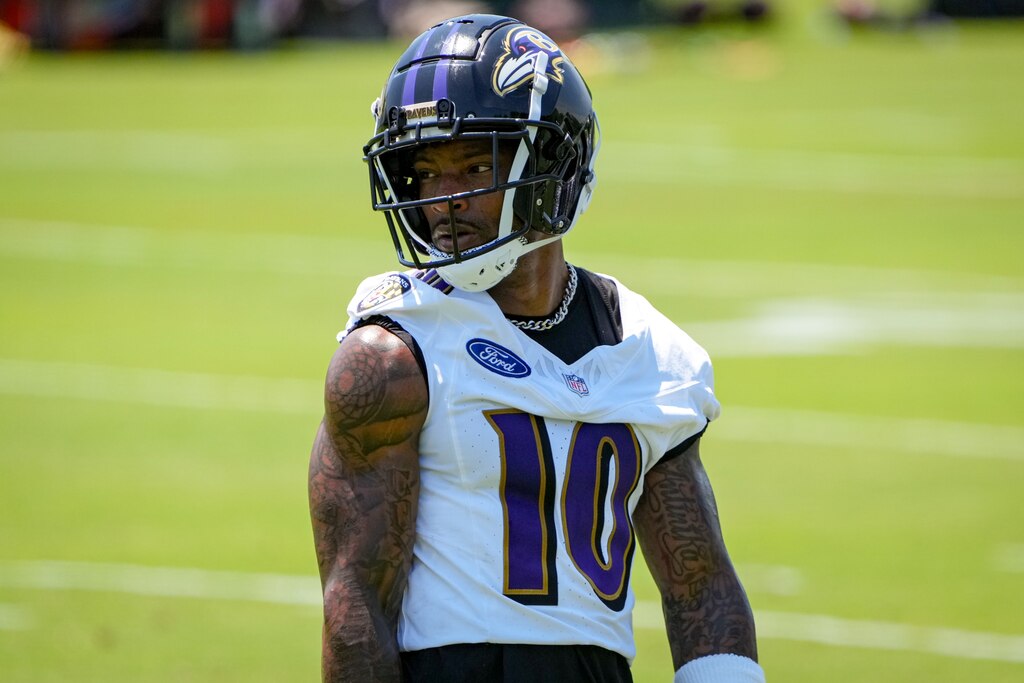
Worst extension: Cornerback Arthur Maulet
Unless you want to quibble with Nnamdi Madubuike’s big deal (he’s been solid if not spectacular), there are not many big miscues here to pick at. It’s not really Maulet’s (or DeCosta’s) fault that injuries have hit so hard. Last season, Maulet (2 years, $4 million) was a great value and a difference maker, especially on blitzes. This year, the physical corner has barely seen the field after getting injured in camp, then getting hurt before an anticipated rivalry game against his old Steelers team. He is on injured reserve, and it’s possible Maulet won’t play again this season.
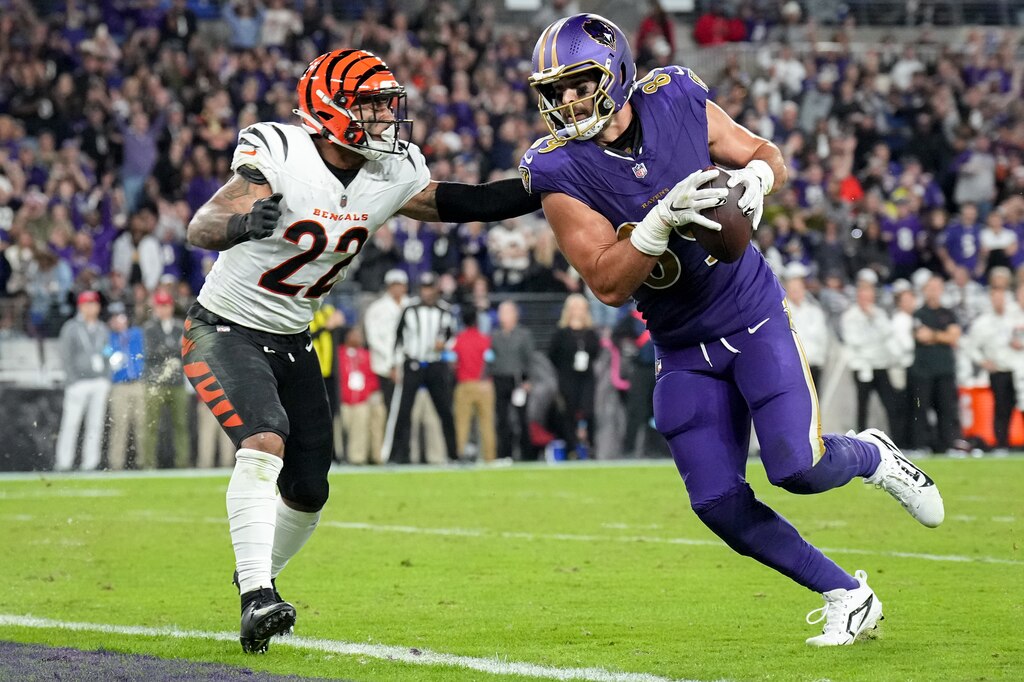
Best farewell decision: Safety Geno Stone
There’s a case to be made that Stone and the Ravens could have used each other this season. The veteran safety had a career year as a ballhawk in part because of his clear understanding of his role and position in then-coordinator Mike Macdonald’s defense. Without that framework, he’s fallen off a cliff. He’s PFF’s 89th-graded safety, not succeeding really in any area. He might have been better if he had stayed a Raven, but he definitely wasn’t worth the $14 million over two years the Bengals ponied up.
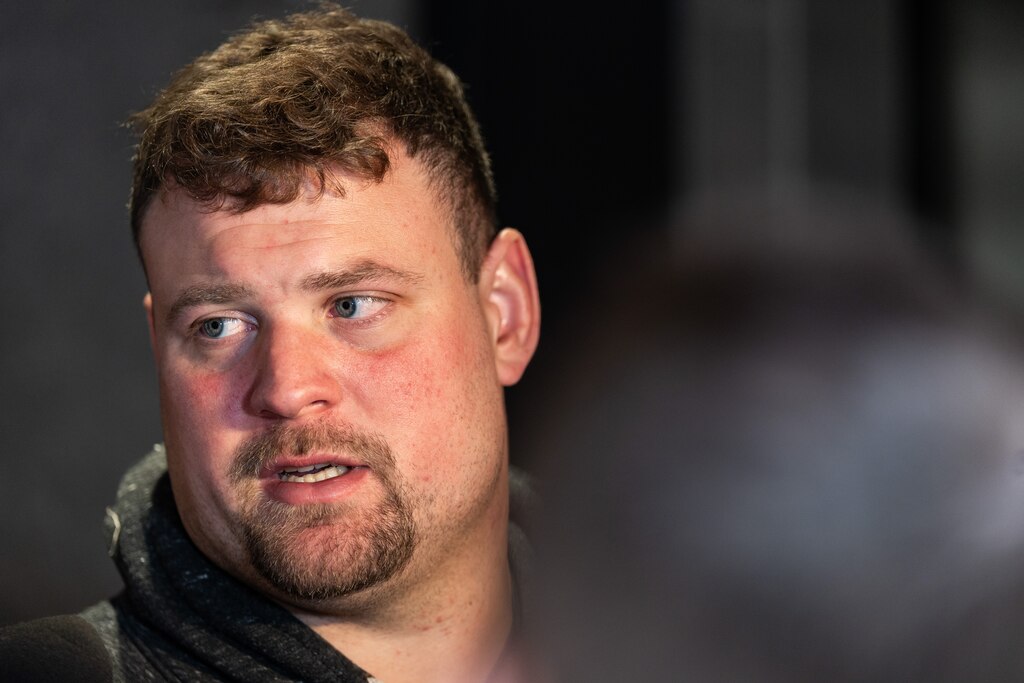
Worst farewell decision: Guard Kevin Zeitler
Between Daniel Faalele and Patrick Mekari, the guard position has been patchwork for most of the year. Zeitler’s absence has been felt most against top defensive lines. The Eagles plowed through them for much of Sunday’s loss. Life is good for Zeitler, on the other hand. He grades as PFF’s second-best guard for a Detroit team that is the NFC favorite. ESPN rates him as one of the 20 best pass blockers this season. His $6 million salary cap hit (at least on the deal he got from the Lions) would have made him a top-10 most expensive Raven, but the stability along the offensive line might have been worth it.
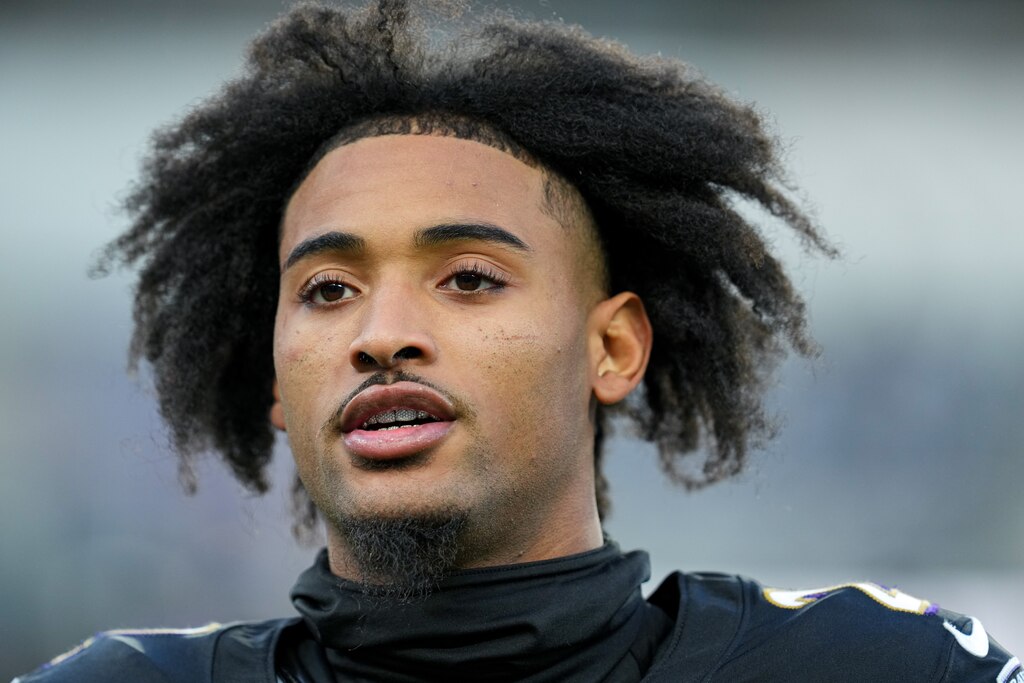
Best draft pick: Cornerback Nate Wiggins
The buzz has been loud about Clemson product Nate Wiggins since the Ravens selected him, and he’s produced. He’s ranked 64th among PFF’s corners, which is pretty close to league median, but he’s also totaled 10 passes defensed, good for second to Marlon Humphrey on the team. Wiggins has yet to record an interception, but he’s been arguably one of the team’s most reliable outside corners, getting 62% of defensive snaps in his first season. His instincts and speed help make up for rookie mistakes, and his above-average PFF run defense grade (76.9) has helped quiet concerns about his slight physical frame.
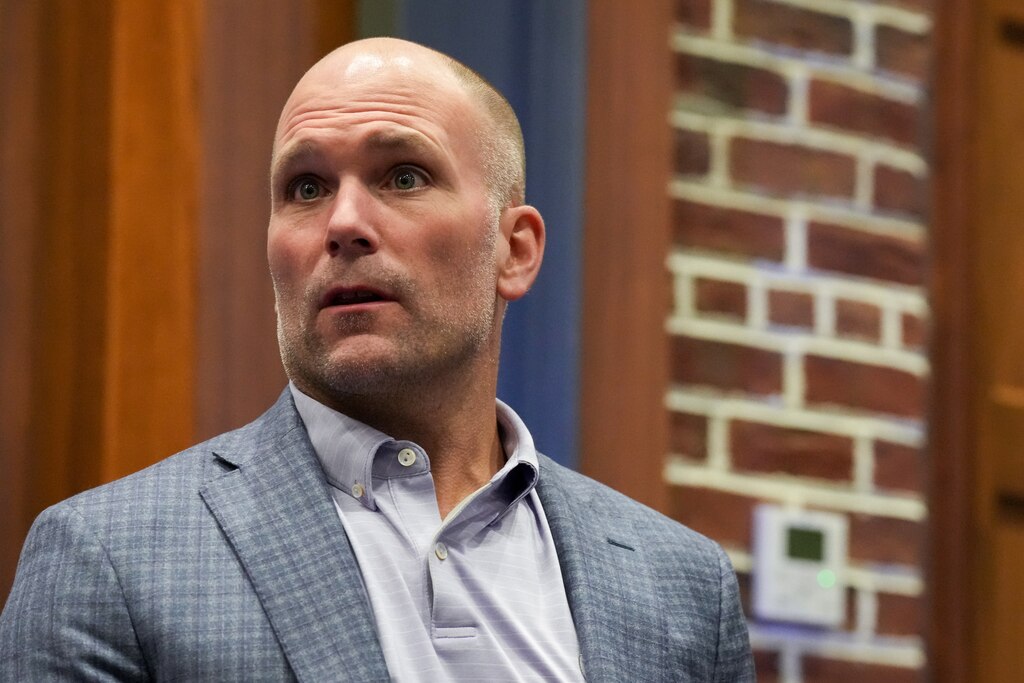
Missed draft opportunity: Not making a trade up
Again this lies in the realm of nitpicking, but one of the most striking lines of DeCosta’s post-draft analysis was “that’s not really something we do.” As with any draft, you have to wait years to see how things shake out, and maybe that’s the case with Adisa Isaac (an oft-banged-up pass rusher), Devontez Walker (a receiver who has barely played) and T.J. Tampa (a cornerback who has also missed time and made just one tackle). But it’s worth pointing out the missed opportunities when the strategy is to wait for the best talent to fall to you. Could the Ravens, for example, have gotten a package together to move up seven spots for guard Dominick Puni, who has been one of the best linemen from the 2024 class? It’s a hypothetical, but if the Ravens fail to entertain the idea of moving up, there are limited options available.
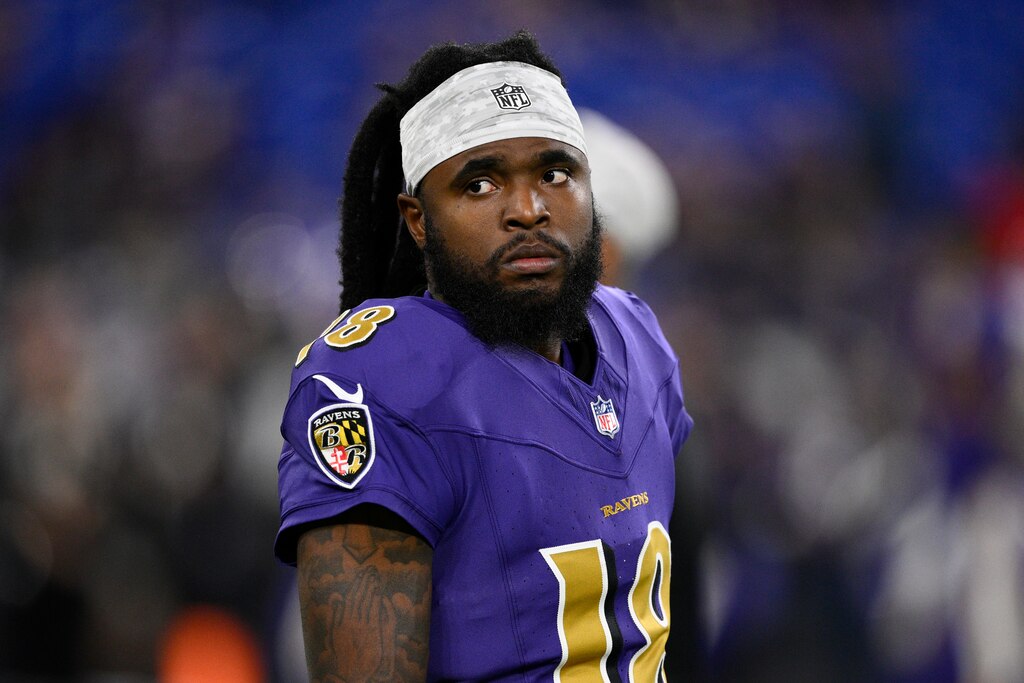
Midseason trades: Receiver Diontae Johnson and cornerback Tre’Davious White
The pick swap to acquire Johnson from the Carolina Panthers was so cheap, actual playmaking production from him would have felt like gravy. But it’s not just that Johnson isn’t producing — he’s also making a scene. His one-game suspension for refusing to enter the Eagles game is a drag on a locker room that has had struggles this year. Somehow, a deal that cost almost nothing has been a net negative.
The upshot is that Tre’Davious White, the veteran cornerback Baltimore got from the Rams, has gotten a handful of snaps. The secondary has played better in recent weeks, and even if that’s not because of White, it certainly speaks to how well he’s played within the defensive framework.
I’ve written before that not trading for pass rush help was a miss, and the NFL’s Ian Rapoport later reported that the Dolphins nixed a trade for Calais Campbell at the deadline when Baltimore thought the deal was close. It hasn’t hurt them quite so much because the Ravens have 41 sacks, but they’re ranked just 26th in pass rush win rate (36%).
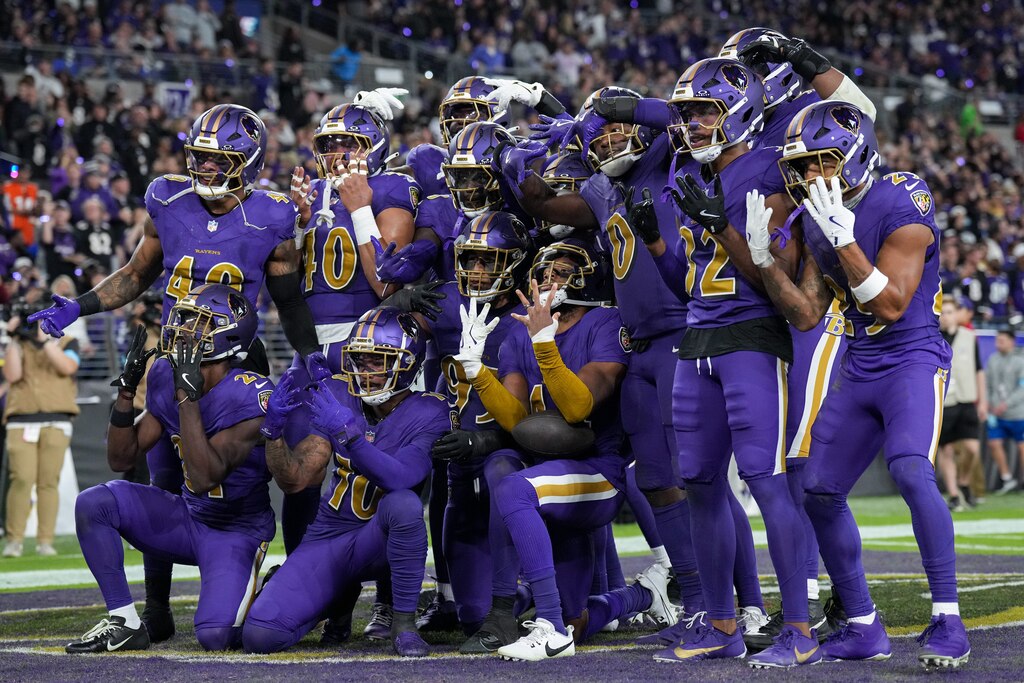
Biggest roster hole remaining: Secondary
Somehow what many of us (myself included) imagined to be a strength morphed into a nightmare. Although recent weeks have seen the defense make steps toward respectability, the Ravens are still 31st in passing yards allowed. Brandon Stephens has greatly regressed, down to the 97th-graded PFF corner out of 112 with qualifying snaps. That’s still better than the safety position, where Jackson is gone and Marcus Williams isn’t playing on just the third year of a five-year, $70 million contract. The answer alongside Kyle Hamilton has been 5-foot-8 Ar’Darius Washington. But big physical receivers have had their way with this unit, even though Humphrey and Hamilton have been among the league’s best at their positions. There were signs that Williams was declining last season (though he was injured most of the year), so the Ravens tried to shore up the position with Jackson, a former All-Pro. It didn’t work out.
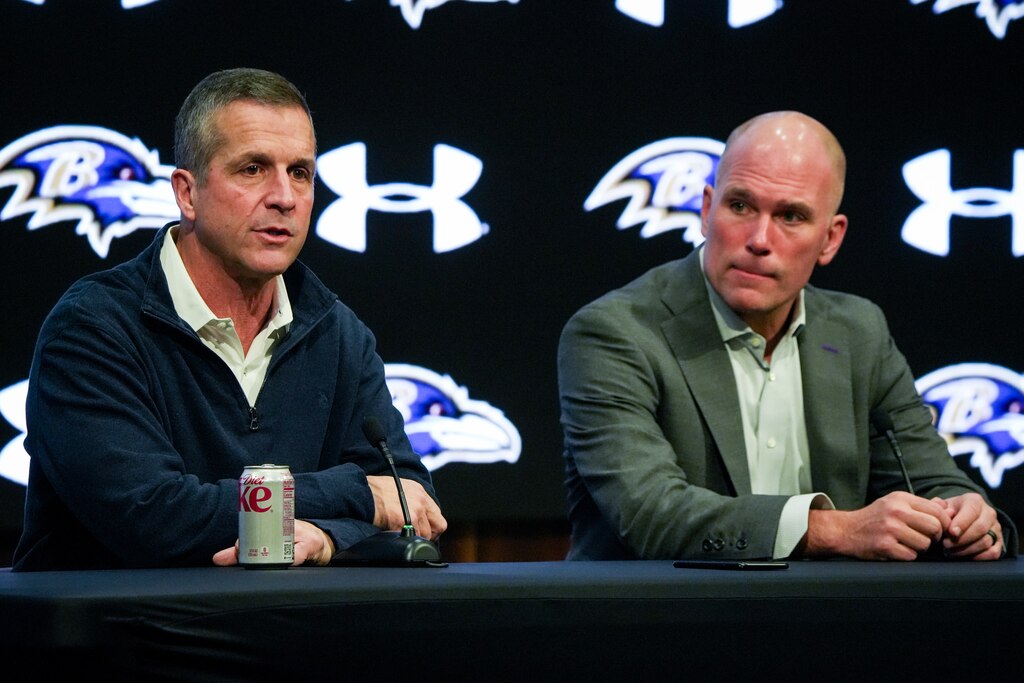
Final thoughts
From a front office perspective, there are many reasons to feel good about this season. The Ravens’ biggest offseason free agent is a smashing success. The team’s two top draft picks are playing relatively well. Of the players they let walk in the offseason — Patrick Queen, Stone, Jadeveon Clowney and Odell Beckham Jr. among them — very few are playing better or even as well as they did for the Ravens.
Yet, after securing the No. 1 seed in the AFC, this year’s squad is poised to lose its division — even though Lamar Jackson is arguably playing better than he did last season during an MVP campaign. The tightening salary cap that forced some of the Ravens’ toughest decisions will only continue to put pressure on DeCosta and his team to be perfect, something which front offices rarely are.
The Ravens have one of the tightest caps in the NFL ($1.6 million, ranked 30th per Spotrac), and next season Lamar Jackson, Humphrey, Roquan Smith and Williams are poised to eat up nearly 41% of that cap.
DeCosta’s problem is not so much the quality of his decisions — many of which have been sound when they were made — but the shrinking margin of error. The 2024 front office has been impacted more by the decisions of previous years than this one, taking on the strain of big contracts, aging stars and injuries.
Although their successes have been made more obvious, so have their mistakes. As much as the Ravens’ front office may hold high esteem in the NFL, the scrutiny it faces is (and should be) extremely high, too.



Comments
Welcome to The Banner's subscriber-only commenting community. Please review our community guidelines.